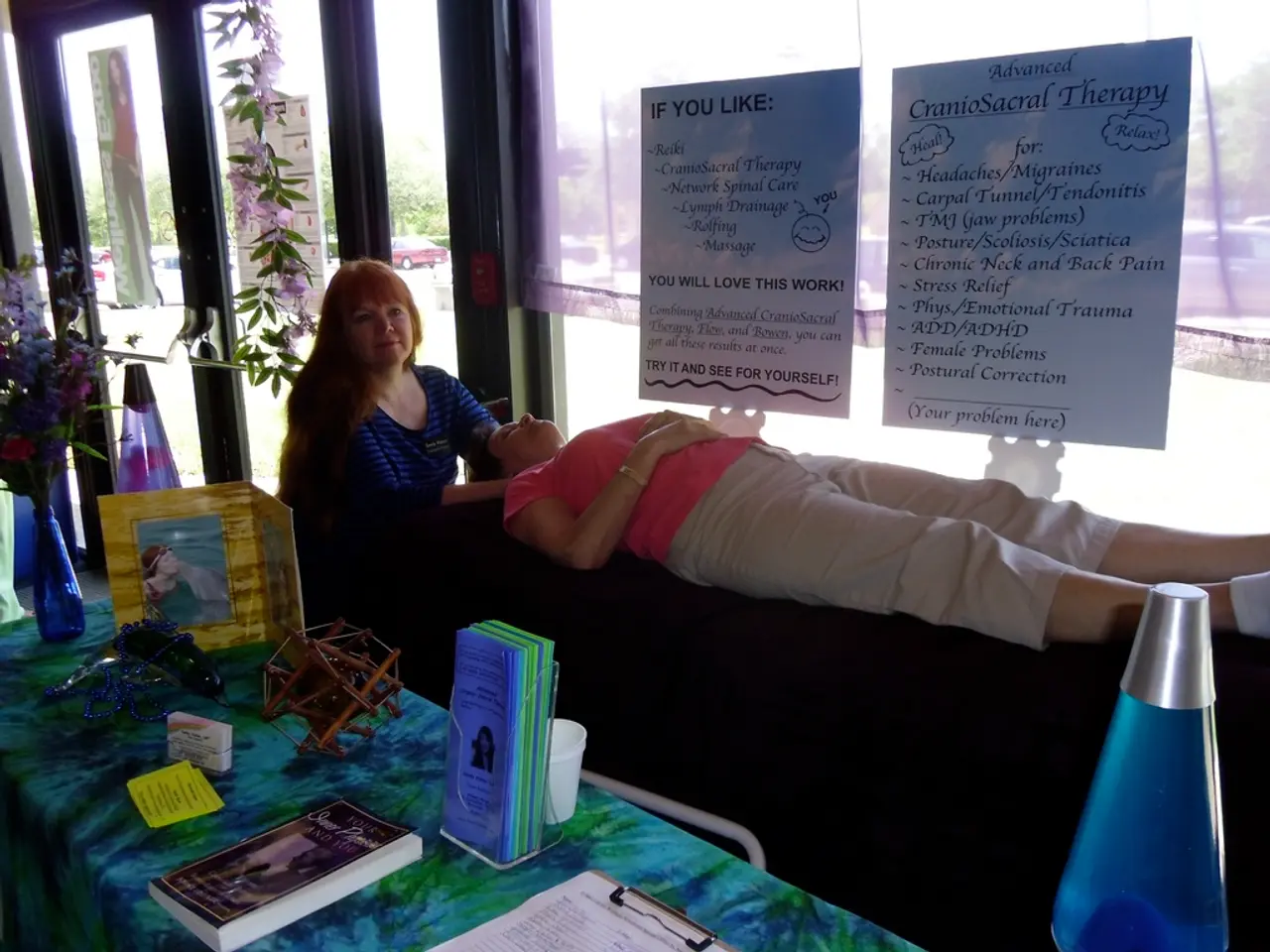Impact of Prostate Cancer Treatment on Mental Health and Emotional Well-being
Hormone therapy, particularly androgen deprivation therapy (ADT), is a common treatment for prostate cancer. While it plays a crucial role in managing the disease, it can also have significant impacts on a person's mental and physical health.
The therapy works by decreasing or blocking male hormones called androgens. This hormonal shift can lead to a variety of side effects, including mood swings, fatigue, confusion, emotional stress, cognitive impairments such as difficulties with memory, attention, and executive functions like planning and decision-making [1][3][5]. These mental health impacts stem from hormonal changes that affect brain regions involved in emotional regulation and cognition, such as the amyggdala and hippocampus, disrupting important neural connections and exacerbating cognitive decline and emotional difficulties [5].
Besides mental health effects, hormone therapy for prostate cancer can also cause physical side effects that may decrease overall well-being. These include fatigue and reduced physical function, weight gain, changes in sexual function and libido, hot flushes, physical discomfort or pain, sleep disturbances, genitourinary changes like urinary symptoms, and loss of bone density [1][2][3].
To help manage these side effects, support programs such as specialized workshops can be beneficial. These programs provide strategies on nutrition, exercise, and mental health management, and they also help reduce isolation by connecting patients with others undergoing similar experiences [1].
It's essential to discuss any emotional side effects, depression, or anxiety with your care team. In some cases, antidepressants or counseling may be recommended to help manage these symptoms [6].
Other less common side effects include loss of muscle mass and physical strength, insulin resistance, anxiety, erectile dysfunction, and changes in blood lipids [2][3]. It's worth noting that hormone therapy can also cause growth of breast tissue (gynecomastia) and loss of interest in sex [2].
In older men and those taking ADT for longer periods, mood swings may persist [4]. Additionally, hormone therapy can affect thinking and memory, a condition known as mild cognitive impairment or "chemo brain" [5].
Remember, if you're experiencing any side effects from hormone therapy, speak with your healthcare team. They can provide guidance, discuss treatment options, and connect you with resources such as counseling, people with similar experiences, or helpful online information [7].
[1] American Cancer Society. (2021). Hormone therapy for prostate cancer. Retrieved from https://www.cancer.org/cancer/prostate-cancer/treating/hormone-therapy.html [2] Mayo Clinic. (2021). Hormone therapy for prostate cancer: Side effects and risks. Retrieved from https://www.mayoclinic.org/tests-procedures/hormone-therapy/about/risks/hrb-20058666 [3] National Cancer Institute. (2021). Androgen deprivation therapy (ADT). Retrieved from https://www.cancer.gov/types/prostate/hp/prostate-androgendeprivation-therapy-pdq [4] National Cancer Institute. (2021). Hormone therapy for prostate cancer: Side effects and risks. Retrieved from https://www.cancer.gov/types/prostate/hp/prostate-hormone-therapy-pdq#section/_174 [5] National Cancer Institute. (2021). Hormone therapy for prostate cancer: Side effects on the brain and nervous system. Retrieved from https://www.cancer.gov/types/prostate/hp/prostate-hormone-therapy-pdq#section/_175 [6] American Cancer Society. (2021). Depression during and after cancer treatment. Retrieved from https://www.cancer.org/treatment/taking-care-of-yourself/emotional-health/depression-during-and-after-cancer-treatment.html [7] American Cancer Society. (2021). Getting support during and after treatment. Retrieved from https://www.cancer.org/treatment/finding-and-paying-for-treatment/getting-support-during-and-after-treatment.html
A person undergoing androgen deprivation therapy (ADT) for prostate cancer may experience mental health impacts due to hormone changes that affect the amyggdala and hippocampus, potentially causing mood swings, cognitive impairments, and emotional difficulties. This therapy can also be associated with a medical condition called mild cognitive impairment or "chemo brain." It's crucial to discuss emotional side effects, depression, or anxiety with the care team and consider antidepressants or counseling as treatment options.




